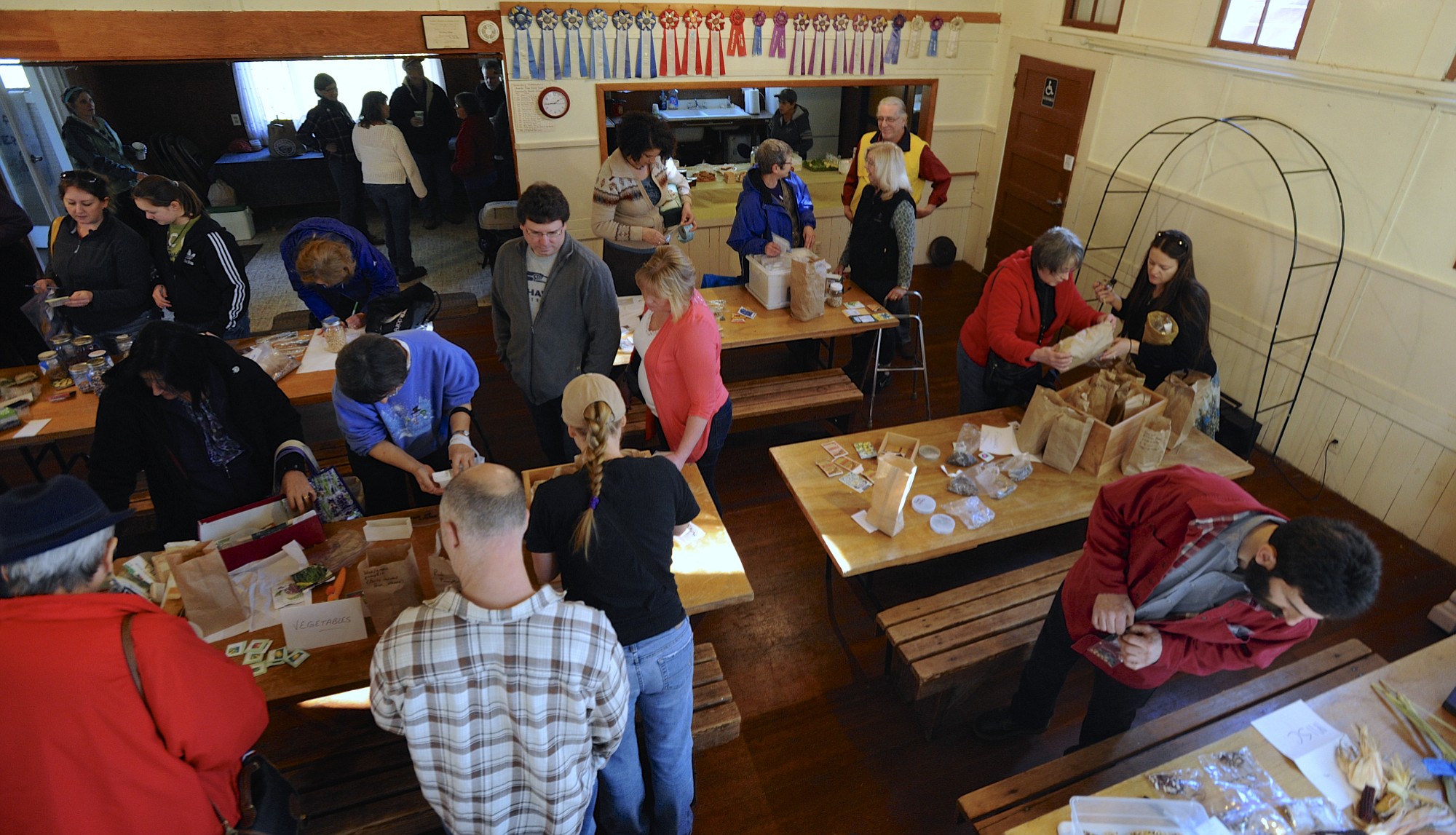More Information
For more about Deanna Tworivers’ seed library, email her at:
deanna@tworiversfood.com
BATTLE GROUND — With still months to go until peak gardening season, a group of about 60 people packed into the historic Venersborg Schoolhouse on Sunday afternoon to get their hands on some lesser-known seeds for their gardens.
The annual seed swap and giveaway, started several years ago by Kristine White of Battle Ground, included tubers that would grow into 6-foot-tall lilies, indigo seeds and “more types of basil than I knew existed,” White said.
For many, the seed swap provides a chance to grow food that’s not typically sold in grocery stores, and to foster crop diversity, said Deanna Tworivers of Vancouver.
Seated in one corner of the schoolhouse, Tworivers chatted with guests about the seed library she keeps with several hundred varieties of heirloom seeds. A friend of hers started the seed library years ago, but handed it over to her for safekeeping once he got too busy to keep it going.
“It’s my job to share it and add to it,” she said. All of her seeds are free, and include seeds for veggies, herbs, flowers and root vegetables.
On Sunday afternoon, Tworivers was sharing a couple of new additions to the library: Glass Gem seeds, a variety of Indian corn that can be popped or ground into cornmeal, and Anasazi beans, which hail from the Southwestern U.S. and date back at least 1,000 years, she said.
She and her husband, Eric Tworivers, bought the new seeds last year and grew them for the first time at their west Vancouver home. They got a decent crop from the corn and the beans, with enough seeds left over to share.
The couple live not far from Clark College on a quarter-acre lot that includes their home. They’ve packed their yard full of fruit trees, berries, grapes and several types of vegetables. Eric Tworivers teaches classes on food preservation and puts his skills to work at home by canning, pickling, drying and freezing the produce they grow.
In the winter, Deanna Tworivers said, she can crack open a jar of tomato soup made from their homegrown heirloom tomatoes, and “it tastes like summertime.”
She said that the produce sold to grocery stores by mainstream farmers has a longer shelf life, and “that makes sense.” But, she added, people who shop at the grocery store might be missing out on good, nutritious food with a shorter shelf life that could be grown in a garden at home.
“What we want to do is continue to have diversity in our food,” she said.
Brush Prairie couple Jahnavi Hastings and Noah Seely were on the hunt for dill Sunday afternoon so they could make their own pickles.
“We did pickles for the first time last year,” Hastings said, but not with their own dill. “I’m looking forward to trying it out.”
And the couple brought plenty of seeds to share.
“We brought some peas and tomato and tobacco seeds, and painted-mountain corn and horse radish crowns,” Hastings said. They left with several small envelopes with herb and flower seeds, many of them perennials.
“We did find some stuff we don’t have,” she said.
They live on a 1-acre property and said they were motivated to grow their own food because it costs less, and it’s more environmentally and socially conscious.
And, “the food you grow yourself tastes about 10 times better than what you buy at the store,” Seely said.




